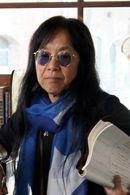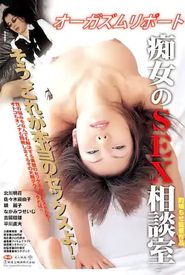Sachi Hamano, also known as Sachiko Hamano and Chise Matoba, is a renowned Japanese film director, celebrated for her prolific contributions to the pink film genre.
Born in March 1948 in Tokushima prefecture, Hamano's passion for filmmaking emerged during her high school years. She pursued photography studies at a Tokyo university before entering the film industry.
Initially, the male-dominated film industry presented significant barriers for a female director, but Hamano persevered, commencing her career as an assistant director at independent studios in 1968. At the suggestion of film producers, she dropped the feminine "ko" ending of her name, Sachiko, and adopted the pseudonym Chise Matoba for credits. She worked under the tutelage of prominent pink film directors, including Genji Nakamura, before making her directorial debut in 1971.
Hamano's goal of creating films from a woman's perspective led her to establish her own production company, Tantansha, in 1984. As a producer and director, she has released an impressive portfolio of over 300 films. Her notable works include the 1990 pinku eiga film Honô no otokotachi, for which she received the Honorable Mention at the Pink Grand Prix in 1997. Additionally, her 1998 film Dai-nana kankai hoko: Osaki Midori o sagashite, based on the life and work of Midori Osaki, received the Amari Hayashi Award at the 2000 Japanese Independent Film Festival.
Hamano's later works include Lily Festival (2001),an adaptation of Hôko Momotani's novel about sexuality among the elderly, which received the Best Film award at the Philadelphia International Gay and Lesbian Film Festival in 2003. In 2006, she collaborated with Momotani again, filming Kohorogi-jô (2007),based on another of her novels. Hamano has also published her autobiography, When a Woman Makes a Film, in 2005.














